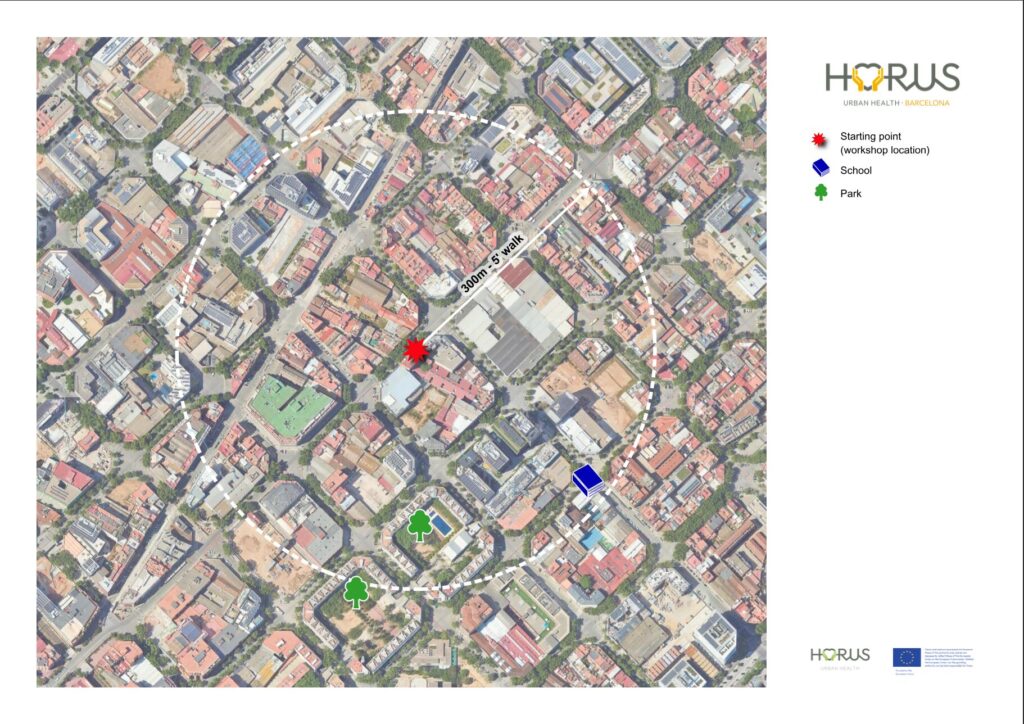In a pioneering effort to improve urban health with the HORUS project, partners will be implementing an innovative approach to engage with local communities.
Our partner meeting in Barcelona, that was held at the end of September, was the perfect opportunity to put this approach to the test in the neighbourhood of Poblenou, renowned for its recent urban transformations. During an internal workshop led by Bax, HORUS partners were able to experience the process first-hand as participants.
To begin with, participants were invited to engage with their surroundings through the lens of a fictional character. Each participant received a narrative card detailing their character’s daily tasks, from errands to social outings, setting the stage for a unique observational experience. Equipped with a map to mark significant elements and areas, as well as a questionnaire to document their findings, participants were prepared to assess how their urban environment affects their daily activities.

During the walk, everyone was guided through various scenarios, such as ‘a walk with a friend’ or ‘to school with my babysitter’. This narrative approach encouraged them to pay close attention to their environment through different lenses, focusing on aspects such as accessibility, safety and available resources that support a healthy lifestyle.
On their return, participants collaborated to fill in a second questionnaire about what their experience had been like. The results of each group were captured in individual spider graphs, from which a comprehensive analysis emerged showing the ratings of the different urban aspects.
This collaborative effort culminated in a larger-format spider chart, illustrating the various perceptions of how each character had felt and experienced the urban environment. This lead to a joint group discussion, where participants explored the differences and similarities that emerge and compared these results with the data generated by the Healthy Cities Generator, that highlighted 6 key urban determinants related to NCDs and lifestyle choices.


Following this collaborative analysis, participants moved on to focus on identifying practical improvements for urban health. So everyone split into smaller groups, armed with maps of the area to point out the positive and negative aspects affecting healthy lifestyles.
During the next months, HORUS will engage more than 150 citizens to put this initiative into practice across the three pilot cities. Participants will also be asked to identify areas of opportunity and suggest improvements of their area, leading into the next phase of pilot interventions.
This engaging initiative is expected not only to raise community awareness, but also encourage participants to play an active role in shaping their urban landscape to improve health.
All the ideas generated during the process, will be instrumental in guiding the future actions of the HORUS project, ensuring that urban planning is adapted to the needs of the city’s inhabitants, thus achieving a healthier and more active lifestyle.
The combination of observation, collaboration and creative problem solving serves as a model for proposing and analyzing future initiatives in this project, aimed at improving urban health through community participation.

